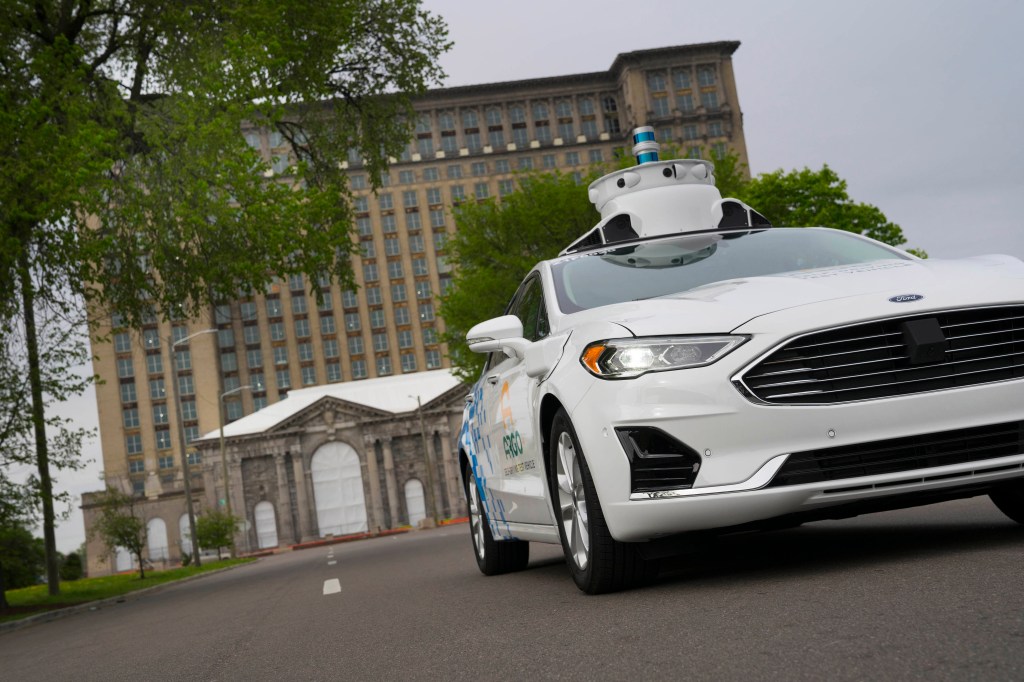Hello and welcome back to our regular morning look at private companies, public markets and the gray space in between.
If you can recall February, we dug into the question of AI startup gross margins. Venture shop a16z had published an interesting blog on the subject, arguing that it may be the case that AI-focused startups will enjoy strong gross margins, but perhaps not as strong as those posted by SaaS companies.
Modern software startups (SaaS companies) have some of the highest gross margins in business, delivering their digital services over the Internet at little cost. Their high-margin revenue has made them incredibly valuable to private and public investors alike. To see a16z draw a line for AI gross margins a little under SaaS, then, was notable. AI startups might earn long-term lower revenue multiples than SaaS firms, and, if so, they might need to adjust their valuation expectations.
Since that nerdy interlude, the world has fallen apart. The United States has accreted over 337,000 COVID-19 cases, the stock markets have fallen sharply and we’re somewhere between a bear market and a recession. Shit, as they say, has changed.
But after our first look at the world of AI margins, asking a number of VCs to weigh in on the matter, we wound up talking to one more VC, David Blumberg of Blumberg Capital, who had some interesting notes on the AI margin matter to share from his portfolio.
Since that conversation, TechCrunch covered Deepgram’s Series A, which brought the subject of AI startups and their margins back into our heads. So, before Q2 really gets under way, a little more on AI and COGS.
AI margins and the future
In Blumberg’s view, AI margins will improve over time. He builds his view from a historical base, noting that in “all of human history” there have been “learning curves” — the changing cost of insights, bending down as costs decline over time. Innovations speed up this process, he said, pointing to automation in the production of automobiles as an example of a jump in efficiency. AI technology, according to Blumberg, will not “break the classic economic model” of rising efficiency leading to falling costs.
Andreessen did not argue against this sort of progress in its blog post, he said. Instead, the firm indicated that AI-focused startups might have “inherently lower margin level than other types of software,” according to Blumberg’s summation. But as AI is still in early days, its gross margins will improve, Blumberg argued to TechCrunch. This will bring its economics far closer to those of other software firms.
The investor had a number of reasons backing his estimations of improving AI gross margins (falling AI cost of goods sold, if you will):
- New mathematics. Better mathematics over time, according to the VC, will lead to better models. This will lower the cost of AI services.
- New hardware. The hardware battle between chip giants Intel, Nvidia and others will continue, spurring better and better machines to run AI companies on; Blumberg is optimistic about the continuation of Moore’s law. So, this particular cost input (COGS element) should decline over time.
- Quantum computing. According to Blumberg, quantum computing is going to “blow a giant hole in the cost structure of current hardware,” so large that it will “open up incredible opportunities for new modeling horizons.” Once again, this should lead to lower COGS for AI shops over time, leading to better margins.
- Falling cloud costs. Blumberg made two points here to undergird this point. First, that the cost per unit of cloud compute will continue to fall, and, second, that the switching costs between commercial clouds will decline. These are related points, as lower switching costs should increase price competition between hyper-scale clouds, but they are also distinct in that pricing could change sans switching cost declines; the latter may merely accelerate the former.
All told that’s a package of improvements that could — should? — bolster AI startups margins in time, raising the value of AI startups closer to those of SaaS companies. If the cost improvements are enough to bring AI-focused startups into the same margin realm as SaaS startups then the distinction between the two declines in importance as the cohorts come closer; so long as high-margin AI startups eventually have better gross margins than low-margin SaaS companies, individual startup gross margins will rise paramount over category distinctions, leaving the “which group is better” conversation largely in the dust. That’s still a ways off, mind.
Blumberg had more to say, teasing out the economic impacts of startups running their own hardware (which can lead to improved gross margins, something that Deepgram detailed during its Series A), and the difference between AI-heavy (autonomous driving, like Waymo for example) and AI-light (Blumberg portfolio company Fundbox’s ML-powered SMB loan decisions), with the latter category possibly sporting higher gross margins.
In short, there’s reason to believe, in Blumberg’s view, that AI-powered startups’ gross margins are going to improve over time, and that a broad, category-level comment on their long-term margin profile today in contrast to SaaS gross margins is probably too pessimistic. That said, some of his bullish takes are still off in the future. So the next few years should give us a clearer picture of what to expect over the long term with these companies, making the question less academic and more one of what they’ll be worth when they go public—and if they can catch SaaS shops.































Comment